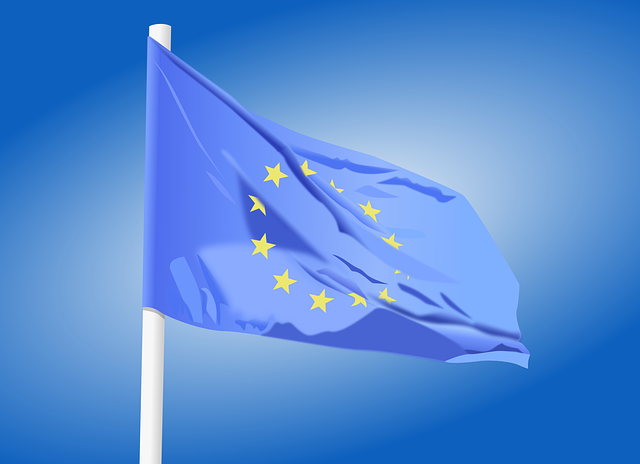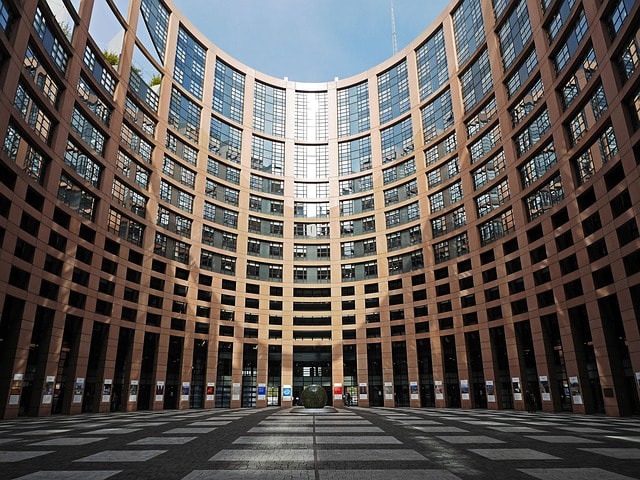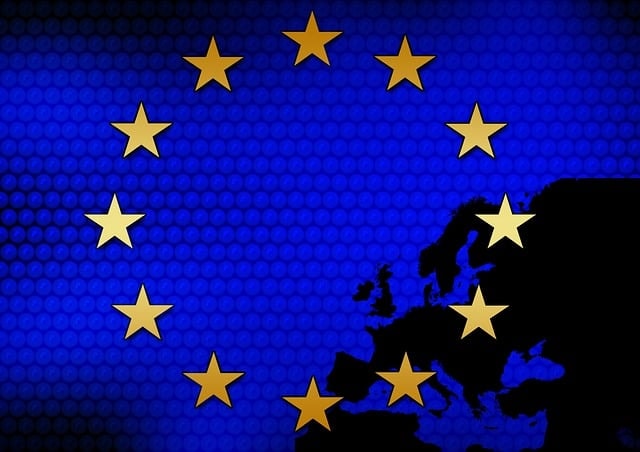Doing business in Europe? Discover how to navigate diverse markets, access a skilled workforce, and leverage the EU Single Market. Read on for essential tips and insights.

For businesses looking to expand globally, Europe’s combination of market access, economic stability, and consumer diversity makes it a compelling destination for long-term success.
Key Takeaways
- Understanding diverse consumer markets and adapting marketing strategies are essential for success in Europe’s varied business landscape.
- Access to the EU Single Market simplifies regulatory compliance, providing significant opportunities for business growth and expansion.
- A highly skilled and multilingual workforce, combined with favorable employment laws and a supportive business environment, contributes to the attractiveness of hiring in Europe.
Introduction to the European Market
The European market stands out as one of the most diverse and dynamic regions in the world, offering a wealth of business opportunities for companies of all sizes. With a population exceeding 700 million, Europe provides businesses with access to a vast and varied consumer base. According to the World Bank, nine of the top 20 countries for ease of doing business are located in Europe, underscoring the region’s attractiveness for investment and expansion.
Many European countries, such as Germany, Switzerland, and the UK, are renowned for their high-income consumers and strong purchasing power, making them particularly lucrative markets for businesses seeking growth. Beyond sheer market size and income levels, the European market offers companies the chance to tap into a rich tapestry of cultures, economic strengths, and innovative ecosystems. This diversity not only presents unique challenges but also opens the door to a wide range of business opportunities across different sectors and countries.
Understanding the European Union
The European Union (EU) is a unique political and economic partnership comprising 27 member states, each with its own rules and regulations. For businesses aiming to conduct business in the EU, understanding the regulatory environment is essential. The EU offers a unified marketplace governed by a single set of rules, which simplifies cross-border operations and helps businesses navigate the complexities of multiple countries.
One of the key benefits of the EU is the freedom of movement it grants to EU citizens, allowing them to live, work, and conduct business in any EU country. This high degree of mobility fosters a flexible and dynamic business environment. However, non-EU nationals may need to secure a residence permit to live and work in an EU country, which can involve additional administrative steps.
The EU also provides significant advantages for businesses, including access to funding and resources through institutions like the European Investment Bank and the European Fund for Strategic Investments. These resources support business growth and innovation, making the EU an attractive environment for both established companies and startups. Understanding the EU’s regulatory framework and the benefits it offers is crucial for businesses seeking to thrive in this integrated market.
The first platform dedicated to streamlining entity setup and management.
Key Factors for Business Success in Europe
Business success in Europe hinges on understanding diverse consumer markets, leveraging a skilled workforce, and capitalizing on the EU Single Market. These factors shape the business landscape and significantly impact growth and success.
The European market is characterized by:
- Significant regional variations influenced by culture, consumer behavior, and economic conditions.
- A GDP of approximately €18.3 trillion, making it the largest single market globally.
- A consumer base of over 700 million people, presenting a substantial market for businesses of all sizes, from small to medium-sized businesses.
- A high level of economic integration among European countries, which further enhances business growth prospects.
Most countries in Europe have diverse taxation methods and skilled labor pools, which attract businesses seeking favorable environments.
Navigating bureaucratic processes, understanding local business etiquette, and recognizing cultural norms are key to establishing strong professional relationships and achieving business success. With these foundational elements in mind, let’s delve deeper into the diverse consumer markets, the skilled workforce availability, and the benefits of accessing the EU Single Market.
Diverse consumer markets
Europe’s consumer markets are as diverse as its cultural landscape. Consumer preferences vary significantly across European countries, necessitating tailored marketing approaches to resonate with local audiences. EU countries in particular have distinct consumer behaviors and regulatory requirements that businesses must consider. For instance, while the Netherlands showcases the highest early adoption of new technology, Stockholm is noted for its contributions to financial technology and gaming, housing multiple unicorns.
Tailoring marketing strategies to each market’s unique needs is vital for winning over diverse consumers. This approach not only enhances customer engagement but also drives business growth by tapping into the specific preferences and behaviors of consumers in different regions.
Understanding these cultural differences and adapting your marketing efforts accordingly can unlock significant business opportunities across Europe.
Skilled workforce availability
Europe boasts a highly skilled and educated workforce, which is a significant asset for businesses looking to expand in the region. Key factors include:
- The growth of local tech talent driven by the successes of first unicorns, which create new spin-offs and foster a thriving innovation ecosystem.
- Cities like London and Berlin recognized as top tech hubs.
- These cities attract numerous startups and offer a rich talent pool for businesses.
A notable feature of Europe’s workforce is its multilingual capabilities, allowing for effective communication across diverse markets. This linguistic diversity not only facilitates smoother business operations but also enhances customer engagement and satisfaction. While European tech hubs are rapidly developing their own ecosystems and talent pools, the concentration of innovative tech talent in Silicon Valley still serves as a benchmark that Europe is striving to match.
Europe’s highly skilled workforce offers a competitive edge, driving innovation and business growth.
Access to the EU Single Market
One of the most significant advantages of doing business in Europe is gaining access to the European Union Single Market. The EU Single Market:
- Facilitates the free movement of goods, services, capital, and people
- Eliminates trade barriers
- Creates a unified regulatory framework
- Enhances consumer safety and competitiveness
- Provides a collective consumer base of over 450 million people
By operating within the EU Single Market, businesses gain access to a unified market, removing trade barriers and opening up new financial and investment opportunities. This environment allows companies to benefit from common standards and regulations, simplifying compliance across member states. This access to a vast and integrated market offers immense business opportunities, enabling businesses to scale and expand their operations efficiently.
For both small and medium-sized businesses, the EU Single Market can significantly boost growth prospects.
Market Research and Analysis
Conducting thorough market research and analysis is a critical first step for any business looking to enter the European market. Each European country has its own unique characteristics, including language, culture, and regulatory requirements, which can significantly impact business operations and consumer preferences. Many European countries present distinct business opportunities, but success depends on understanding these local nuances.
For example, the Netherlands is recognized for its highly skilled workforce and vibrant innovation ecosystem, making it a prime location for tech startups and companies focused on new technology. In contrast, Italy’s economy is rooted in traditional industries such as manufacturing and tourism, requiring a different approach to market entry and business strategy. By taking the time to analyze each market’s specific dynamics and cultural differences, businesses can tailor their offerings and marketing strategies to better meet the needs of local consumers.
Effective market research enables companies to identify the most promising markets, anticipate challenges, and position themselves for success in the diverse landscape of the European market.
Competitive Landscape
The competitive landscape in Europe is both robust and varied, with many companies competing for market share across different sectors. To succeed in the European market, businesses must be acutely aware of their competitors and develop strategies that set them apart. This often involves investing in research and development, enhancing product or service quality, and delivering exceptional customer service.
Many European countries boast a highly skilled workforce, which can be a significant asset for businesses looking to innovate and grow. For example, Germany is renowned for its expertise in engineering and manufacturing, while the UK is a global leader in financial services. By understanding the strengths of each European country and the competitive dynamics at play, businesses can leverage local talent and industry expertise to gain a competitive edge.
Staying informed about the competitive landscape and continuously adapting strategies is essential for businesses aiming to establish a strong presence and achieve long-term success in Europe.
Benefits of Expanding Your Business to Europe

Expanding your business to Europe offers numerous benefits, from economic stability and high-income consumers to thriving innovation hubs and a supportive business environment. These factors collectively create a fertile ground for business growth and success, making Europe an attractive destination for businesses from around the world.
The following countries are particularly attractive for doing business in Europe due to their favorable rankings, competitive tax rates, and ease of startup procedures: Germany, the UK, and the Netherlands.
With a population exceeding 740 million, Europe provides a vast consumer market for businesses to tap into. The economic stability of many European countries, coupled with a high-income consumer base, offers reliable market opportunities for sustained business growth. Additionally, most European countries are seeing Eastern Europe emerge as a hub for tech talent, driven by the success of local startups.
Europe’s supportive business environment, marked by government initiatives, funding programs, and mentoring, enhances business opportunities. The Enterprise Europe Network, for instance, has played a key role in facilitating the growth of numerous businesses across the continent. These benefits warrant a closer look.
Economic stability and high-income consumers
Countries like Germany, Switzerland, and the UK are known for their high-income consumer base, providing lucrative business opportunities. Italy, while known for its high corporate tax rate, offers flexible residency rules for entrepreneurs, making it a unique option within the European business landscape. Nordic countries, in particular, are noted for having high employment costs, influenced by wages and expected benefits packages. In these high-cost regions, businesses need to offer attractive benefits and high salaries to remain competitive in the labor market, making it essential for companies to consider strategies that work in one country.
Economic stability in these countries ensures a reliable market, reducing risks associated with fluctuations. This stability, coupled with a high-income consumer base, creates fertile ground for growth, making Europe attractive for expansion.
Innovation and technology hubs
Europe is home to some of the world’s leading innovation and technology hubs, attracting numerous startups and fostering a vibrant entrepreneurial spirit. Notable examples include:
- Berlin, recognized for significant investments in tech innovation and a thriving startup culture.
- Stockholm, also known for its tech innovation and startup environment.
- Sweden, known as a center for technological advancements and hosting numerous innovative startups.
Tech startups in Europe leverage local innovation ecosystems, a key driver of their success. These hubs not only attract talent and investment but also provide a supportive environment for businesses to thrive. The entrepreneurial spirit and early technology adopters in these regions further enhance growth prospects.
Supportive business environment
Many European countries provide a supportive business environment that fosters growth and innovation. The Netherlands, for example, is highlighted for its strong government initiatives aimed at attracting foreign businesses. Comprehensive support programs for startups, including funding and mentoring, are available in many countries, as well as in other countries.
Small and medium-sized enterprises (SMEs) in Europe benefit significantly from this supportive service environment, especially certain types of businesses. Examples such as IDloop, a German tech startup, which became a leader in biometric technology with the help of funding and support for team expansion, illustrate the positive value deal of these initiatives.
This supportive business culture fosters an entrepreneurial spirit and provides ample business opportunities for both small businesses and medium-sized businesses.
Access to Funding and Resources
Securing access to funding and resources is a key factor in driving business growth in the European market. The EU offers a range of funding opportunities, including support from the European Investment Bank and the European Fund for Strategic Investments, which help businesses access much-needed capital. In addition, many European countries have their own funding programs, such as tax incentives and grants, designed to encourage innovation and support business expansion.
Beyond financial support, the EU has developed a comprehensive network of business incubators and accelerators, providing companies with mentorship, networking opportunities, and access to valuable resources. These support systems are particularly beneficial for startups and small businesses looking to scale their operations and enter new markets.
By understanding and leveraging the various funding options and resources available across the European market, businesses can develop effective strategies to secure capital, foster innovation, and achieve sustainable growth in Europe.
Navigating Legal and Regulatory Challenges

Navigating the legal and highly regulated regulatory environment in Europe can be complex due to the diverse legal systems and extensive EU regulations. Businesses operating abroad or outside their home country must pay special attention to cross-border legal and tax implications. However, operating within the EU Single Market allows businesses to benefit from a unified regulatory framework, simplifying compliance across member states. Understanding legal requirements and ensuring compliance are crucial for operating successfully in Europe.
The legal framework in Europe encompasses various aspects, including consumer protection, competition law, and data privacy. Businesses must also adhere to different tax regulations, such as corporate income tax, VAT, and transfer pricing rules, which can vary widely across regions. Engaging a partner like GEOS can help businesses navigate these complexities and ensure full compliance.
We should delve into the diverse legal systems, the importance of GDPR and data protection, and the varying tax regulations across Europe.
Understanding diverse legal systems
Businesses in Europe must navigate diverse legal frameworks that can vary significantly by country. Compliance with local regulations is crucial for businesses to operate legally in different EU member states. Each European country has its own legal traditions and systems that businesses must understand to ensure compliance.
The legal frameworks governing employment in Europe can differ greatly, impacting hiring practices and employee rights. Understanding these legal differences and ensuring local compliance are essential for effective workforce management and avoiding legal pitfalls.
GDPR and data protection
The General Data Protection Regulation (GDPR) governs the collection, processing, and protection of personal data for businesses operating within the EU. Compliance with GDPR is crucial, as it mandates detailed guidelines for handling personal data and imposes substantial fines for non-compliance.
Businesses must ensure that their data processing practices align with GDPR requirements to avoid legal repercussions and maintain consumer trust. Adhering to strict data protection rules ensures compliance and enhances your reputation for data security and privacy.
Varying tax regulations
Corporate tax rates and local tax regulations differ across European nations, influencing the overall cost of doing business. Certain countries offer special incentives or lower tax rates to attract foreign investment. Understanding these differences, including value added tax, is crucial for businesses to manage their tax liabilities effectively and make informed decisions about their operations.
Businesses must navigate varied national tax laws and accounting standards, which can pose compliance challenges. Engaging tax advisors or consultants helps businesses comply with local tax regulations and optimize their taxed tax strategies to pay effectively.
Overcoming Bureaucratic Hurdles
Navigating bureaucratic processes is crucial for establishing and operating a successful business in Europe. EU member states aim to streamline business registration, targeting a setup process of no more than three working days. This streamlined process enhances efficiency and encourages investment, allowing businesses to focus more on growth and market strategies than on bureaucratic red tape.
A clear understanding of registration processes and employment laws is required to overcome bureaucratic hurdles. In some cases, obtaining a residency permit is a necessary step for foreign entrepreneurs to legally establish and operate a business in Europe. Simplifying these processes can reduce the time and effort needed to set up and operate a business, enhancing efficiency.
Simplifying registration processes
Countries known for efficient and quick business registration processes include South Korea, which also has specific mandatory tax registrations for entity setup:
- Estonia: Recognized for its efficient online business registration processes, allowing new companies to register quickly.
- Denmark: Considered one of the easiest countries in Europe to establish and operate a business.
- Several other European countries: Offer quick company registration processes to facilitate business setup, often completing the process in under a week.
Streamlined registration processes, such as those in Ireland and Estonia, appeal to tech-savvy entrepreneurs and enhance the overall ease of doing business. These efficient systems enable businesses to start operations swiftly and focus on their core activities and growth strategies.
Navigating employment laws
Navigating employment laws in Europe is essential for ensuring full compliance and managing your employees effectively. Contracts are regularly reviewed to ensure timely compliance and quick onboarding processes. In Slovenia, Slovakia, and the Czech Republic, there is a mandatory work-from-home allowance, reflecting the evolving nature of work environments in Europe.
Countries like Switzerland mandate paid annual leave of 20 days, increasing to 25 for specific age groups, while Austria requires a monthly work equipment allowance. Understanding and adhering to these employment laws is crucial for fostering a positive work environment and ensuring that your business operates within legal parameters.
Cultural Considerations for European Business

Cultural considerations play a pivotal role in conducting business successfully in Europe. Key points include:
- The median age of European consumers has surpassed 42 years, impacting product preferences and demand.
- Many professionals in Europe possess multilingual capabilities, enhancing communication in diverse markets.
- For businesses in diverse European markets, understanding cultural differences is crucial.
- Cultural awareness improves interactions and facilitates collaborations.
Business culture in Europe varies widely, and being aware of these cultural differences can help businesses navigate the complexities of the European market. Let’s explore the communication styles, business etiquette, and language diversity that influence business operations in Europe.
Communication styles
Communication styles in Europe differ significantly across regions. Countries in Northern Europe tend to favor direct and clear communication, whereas Southern European cultures typically employ more nuanced and indirect methods. For instance, Germany is known for its straightforward communication style, contrasting with the more relaxed approach seen in Spain.
Understanding these communication preferences can enhance collaboration and negotiation in business settings. Awareness of these cultural differences is crucial for fostering effective communication and building strong professional relationships across Europe.
Business etiquette
To navigate the cultural nuances effectively, businesses should:
- Be adaptable and foster inclusive practices that honor local customs and languages.
- Understand business etiquette, which is crucial for fostering strong relationships in Europe.
- Recognize that communication styles vary widely across Europe to avoid misunderstandings and promote clearer dialogue.
Language diversity in Europe enhances customer engagement and satisfaction, making linguistic appreciation a key component of business etiquette. Businesses that adapt their practices to local customs and languages are more likely to build successful and lasting relationships with their European counterparts.
Language diversity
The linguistic variety in Europe not only enriches the cultural landscape but also plays a key role in enhancing customer satisfaction and engagement. Speaking local languages significantly improves client satisfaction and loyalty, making linguistic diversity a valuable asset for businesses and their native language.
Adapting communication strategies to local languages can facilitate better customer engagement, improving overall business performance. Businesses that embrace language diversity are better positioned to connect with clients across Europe, enhancing their market presence and customer relationships.
Costs and Benefits of Hiring in Europe

Evaluating the costs and benefits of hiring in Europe is crucial for making informed business decisions. Mandatory employer costs in Europe can include significant social security contributions and statutory paid leave requirements, which affect overall hiring expenses. Common employee benefits in Europe often include bonuses, additional allowances, and other incentives that play a crucial role in employee retention strategies.
Understanding these costs and benefits helps businesses optimize hiring practices and enhance employee satisfaction. We should delve into the specific employer costs and employee benefits associated with hiring in Europe.
Employer costs
Mandatory costs for employers can vary significantly across different European countries, making it essential for businesses to understand local regulations. In the UK, small to medium enterprises face a simpler structure for employer social contributions than larger corporations, which have additional requirements.
These employment costs, influenced by local taxes and regulations, can impact the overall cost of doing business. Businesses must carefully evaluate these costs to ensure they remain competitive and financially sustainable in the European market.
Employee benefits
Common employee benefits in Europe include private healthcare and work-from-home allowances, which vary widely by country. In many European countries, additional allowances for work-related expenses are often required by law, enhancing employee satisfaction. These benefits play a crucial role in enhancing job satisfaction and employee retention, making businesses more competitive in the labor market.
Providing attractive employee benefits can significantly impact employee retention, helping businesses retain top talent and maintain a motivated workforce. Offering these benefits can enhance your reputation as an employer of choice in the European market.
Case Studies: Successful Business Expansion in Europe
Real-world case studies provide practical insights into how different companies successfully navigate expansion into the European market. Many businesses choose to invest significant resources in market research, local partnerships, and infrastructure to ensure a successful entry into the European market. IKEA’s expansion into Europe is characterized by its adaptation to local markets and building a strong customer base. A Toronto construction firm achieved a 15% increase in revenue after expanding into Germany and the UK.
These case studies highlight key strategies such as market adaptation, understanding local consumer preferences, and a focus on building strong customer relationships. Let’s explore the success stories of tech startups and SMEs in Europe.
Tech startups
Innovative tech startups are flourishing in European cities like Berlin, Stockholm, and the Netherlands, attracting talent and investment. Keego Mobility has successfully expanded its hiring operations to markets including Berlin, Netherlands, and Sweden, leveraging local innovation ecosystems. Many of these startups establish ecommerce platforms to sell their products and services across multiple European markets, ensuring compliance with local regulations.
These startups benefit from the entrepreneurial spirit and early adopters of new technology in these regions, driving business growth and success. The supportive environment for tech innovation makes Europe an attractive destination for tech startups seeking expansion.
SMEs
Small and medium-sized enterprises (SMEs) play a vital role in the European economy, capitalizing on the supportive business environment to expand their reach and operations. A UK-based SME, Brewdog, utilized crowdfunding to finance its expansion into European markets and build a loyal customer community.
Utilizing platforms like Deel allows SMEs to increase speed to market by quickly hiring workers in Europe, further enhancing their operational capabilities. These examples illustrate how SMEs can successfully navigate the European market and achieve business growth.
Summary
Expanding your business to Europe offers immense opportunities, but it requires navigating diverse consumer markets, understanding legal and regulatory challenges, and being culturally aware. The benefits of economic stability, high-income consumers, and supportive business environments make Europe an attractive destination for business growth.
By leveraging the highly skilled workforce, accessing the EU Single Market, and understanding the cultural nuances, businesses can successfully expand and thrive in the European market. Real-world case studies of tech startups and SMEs further demonstrate the potential for success in Europe. Embrace these insights and strategies to embark on your European business venture with confidence.
Frequently Asked Questions
What are the key factors for business success in Europe?
Understanding diverse consumer markets, leveraging a highly skilled workforce, and accessing the EU Single Market are crucial for business success in Europe. These elements ensure that companies can effectively adapt and thrive in a competitive landscape.
How does Europe’s economic stability benefit businesses?
Europe’s economic stability creates a reliable market environment, allowing businesses to thrive and expand within a high-income consumer base. This stability fosters confidence and investment opportunities for both local and international companies.
What are the main legal and regulatory challenges in Europe?
The main legal and regulatory challenges in Europe include navigating diverse legal systems, ensuring compliance with GDPR, and managing varying tax regulations. Addressing these complexities is essential for successful business operations in the region.
How can businesses overcome bureaucratic hurdles in Europe?
Businesses can overcome bureaucratic hurdles in Europe by streamlining registration processes and gaining a thorough understanding of employment laws. This approach can lead to increased efficiency and smoother operations.
Why is cultural awareness important for doing business in Europe?
Cultural awareness is crucial for conducting business in Europe as it fosters strong professional relationships and improves interactions in diverse markets. Understanding cultural nuances can significantly influence success in negotiations and collaborations.
How can GEOS help?
At GEOS, we’ve mapped out the entity setup & maintenance processes in 80+ countries and packaged it into a convenient platform/service. We also provide ongoing services like Resident Directorship, Registered Address & Tax/Accounting to help clients through the process of employing regional teams with their new entity.
This article does not constitute legal advice.



